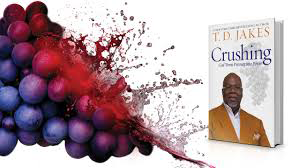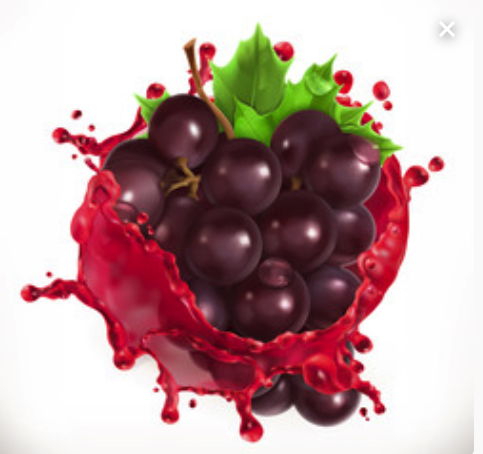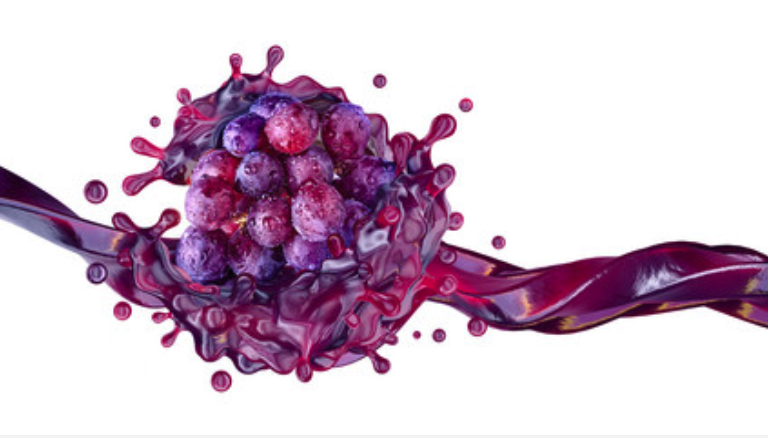 In this session we go through chapter 5 in our study through Crushing by TD Jakes, Blood of the Vine.
In this session we go through chapter 5 in our study through Crushing by TD Jakes, Blood of the Vine.
During the upcoming holiday season we will be encouraged to joyful and in good cheer. I was even reminded lately that Christians should be the happiest people on earth. Sometimes it is easier than other times.
When times are good, it’s tempting to overlook those who suffer in silence around us. Those who endure crushing, however, have their pain intensified when they are forgotten or overlooked by those celebrating around them.
Some holidays leave us with these same mixed emotions. We enjoy celebrating and count our blessings even as we grieve for and remember loved ones we have lost. We try to move on, but the suffering of others reminds us of our own losses. We know that regardless of our individual circumstances at any given moment, we all experience crushing moments that force us to confront our own painful losses. Our humanity unites us along with a desire to see our suffering produce change.
When have you been celebrating a holiday or festive gathering and experienced a wave of sadness or memories of past crushing? How did you handle the tension between celebrating and grieving?
What has helped you get through holidays and anniversary dates following a season of mourning?
The words testify and testament both have the same Latin root word, testi, literally meaning “witness.” In the Bible both these words are tied to the significance of blood and the importance God places on blood. In Scripture we see how blood becomes a way to give life, to communicate, to reveal, to protect, to seal, to atone, and to save.
In the Old Testament, the blood of slaughtered lambs shed on the alters in the temple became the means of atonement for people’s sins prior to Christ’s death on the cross, which emerges in the New Testament. The contrast between these two sacrifices is important because one is temporary – the bloodshed of animals for that moment’s sacrifice – and the other eternal as Jesus’ shed blood and resurrection forever defeated sin and death.
We also see this contrast in the central theme in both the Old and New Testaments. The Old Testament bears witness to the fall of mankind because the stain of human sin is transferred from generation to generation by blood. on the other hand, the New Testament testifies of the redemption of mankind through the eternal blood of Jesus Christ, transferred from person to person by accepting His sacrifice on their behalf.
When was the last time you bled or saw your own blood? How did it make you feel when you saw it? Why?
Why do you believe blood was such an important part of sacrificial offerings in the Old Testament?
How does blood “testify” to what is true about who we are as human beings? As God’s children created in His image?
Jesus serves as the perfect example of how crushing leads to resurrection and transformation. First, God sent His only Son into our world to be born in a manger to a poor carpenter and his virgin bride. Jesus grew into a man who revealed Himself to be the Messiah. He healed the sick, fed the multitudes, walked on water, hung out with outcasts, and forgave sinners. But that was just the beginning of why He came.
 The crushing Christ endured goes beyond any suffering we can imagine. He was crushed in every way – physically beaten, emotionally isolated, and spiritually bereft. After being whipped by soldiers, Jesus carried His own cross before His body was nailed to its wooden, rough-hewn surface. Excruciating pain must have electrified every nerve in His body. Even as nails in His hands became unbearable. he shifted His weight only to feel more pain from the iron spikes pinning His ankles.
The crushing Christ endured goes beyond any suffering we can imagine. He was crushed in every way – physically beaten, emotionally isolated, and spiritually bereft. After being whipped by soldiers, Jesus carried His own cross before His body was nailed to its wooden, rough-hewn surface. Excruciating pain must have electrified every nerve in His body. Even as nails in His hands became unbearable. he shifted His weight only to feel more pain from the iron spikes pinning His ankles.
Christ’s physical trauma reflected the emotional and spiritual destress within.. We can assume that because our emotions are given to us by our Creator, and because we are made in His image, then He experiences His own kind of emotions. The Bible tells us that Jesus experienced everything known to the human condition – joy, sorrow, anger – without allowing any emotion to become an entrance for sin. With His Father forsaking Him in order that He might die only to rise again and save all of humankind. Christ experienced an utter loneliness and isolation that we will never fully comprehend.
Jesus endured all of this crushing only so we could be reconnected, restored, and redeemed for relationship with God. Christ’s suffering served the greatest purpose possible. He reminds us that our pain is never in vain.
How did the blood offerings of the Old Testament change in the New Testament? In other words, why did Christ have to shed His blood and die in order to pay for our sins?
What feelings arise in you as you consider the suffering Jesus endured for your sake on the cross? How do these emotions affect your relationship with Him? Why?
What emotions within you do you struggle to identify in Christ? Anger? Disappointment? Loneliness? Something else? Why do yo have a difficult time imagining that Jesus felt this way?
If not an emotion now, has there been one in the past that you wrestled with? How did you endure and what is your mindset now?
 When we are faced with the bloody trauma of crushing, we often feel we have no choice but to accept death and move on. In order to survive, we pronounce certain areas of our life dead and bury it deep within us. We carry these ashes of our dreams within us, part of the better burden that lingers in the wake of life’s crushing events.
When we are faced with the bloody trauma of crushing, we often feel we have no choice but to accept death and move on. In order to survive, we pronounce certain areas of our life dead and bury it deep within us. We carry these ashes of our dreams within us, part of the better burden that lingers in the wake of life’s crushing events.
Christ’s resurrection from the grave, however, forces us to reconsider the purpose of all that we have buried in our lives. What was once tainted by the inadequacy of our own effort and sinful failures can be resurrected and used as a reflection of our Saviors’s power and God’s glory. Jesus did not die just to save you – he died for every part of us that we have ever given up on and abandoned. We can know life through the resurrection power of the Lord stepping out of the darkness of the tomb.
What dreams have died within you since your childhood? What has been the cause of their expiration? Which ones’ ashes do you still carry inside you?
How often do you think about dreams that you believe are no longer attainable? How do you feel when they come to mind?
What dream have you refused to let die inside you, despite all the crushing moments of your life? How have you kept it alive all these years? What do you need to do next to breathe life into it?
rushing grapes not only expresses the juice from the skins containing the fruit, but it also separates the unusable parts of the grape from the juice. If grapes are not picked when ripened, they dry up and the branch loses strength to remain connected to the vine. The fruit falls and rots on the ground, never to be transformed into the exquisite wine it might have been.
As our Master Vintner, God wants to save us from dying on the vine or rotting on the ground. He wants us to let go of the fruit of past seasons’ harvest in order to discover the fruit we will become – and better still, the eternal wine He wants to make from all the fruit within us. We must let go of the fruit we’ve lost as well as the fruit that we cling to as our greatest achievements. Instead, we must choose to celebrate the suffering that comes with crushing in order to become divine wine served for His purposes.
What are you looking forward to in your life that has not yet come about – for instance, changing careers, getting married, or retiring? What are you presently doing to facilitate this anticipated goal?
When was the last time you shared your dreams with God and asked His blessing and favor over them? Can you share a few big goals you want to fulfill with God’s help?
As we have learned in this session, blood is important in our lives, just as juice is important in making wine. It does not come easy, and we will learn more in the next session, The Price of Crushing.
Jakes, T. D. Crushing: God Turns Pressure into Power. FaithWords, 2019.
